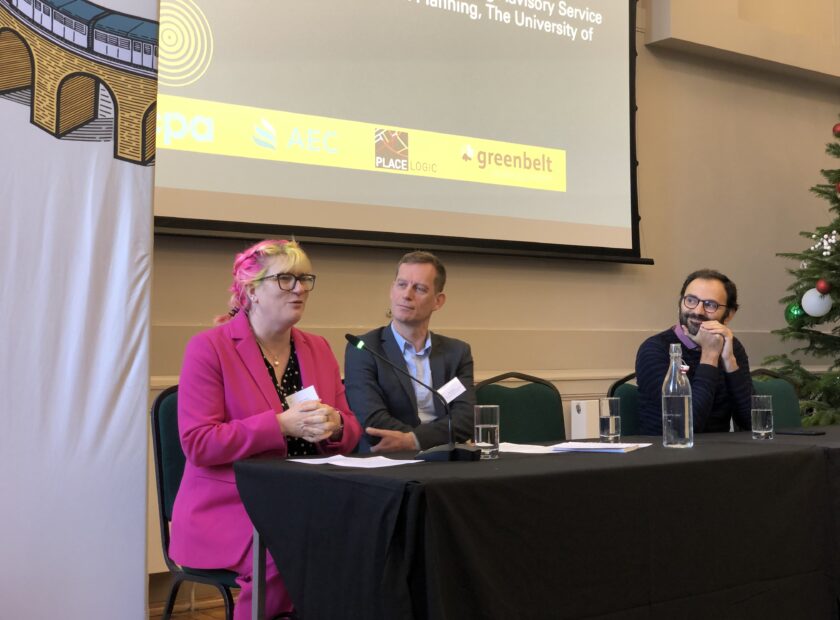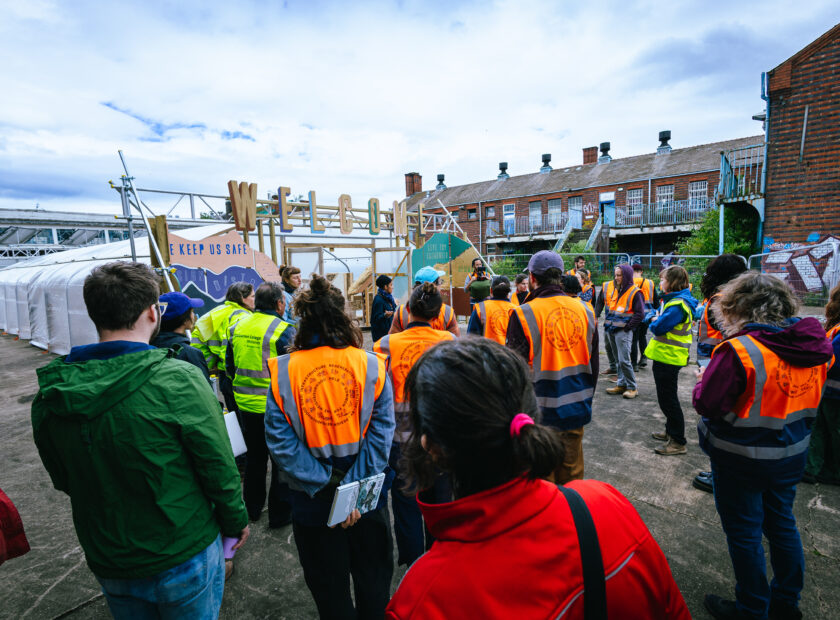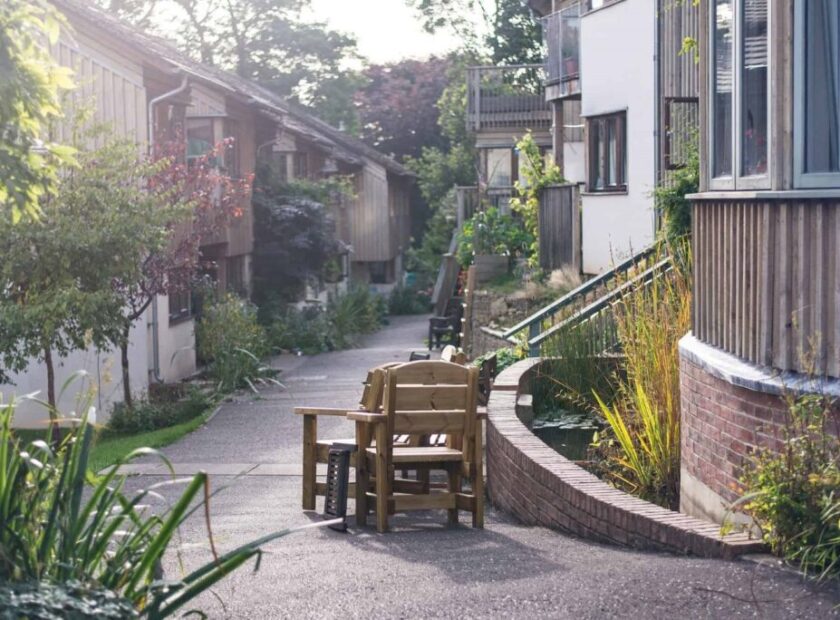This contribution is not written with any expectation of changing anyone’s mind, but as a final call to arms to save the ideals of planning which did so much to improve the quality of our society.
Just to be clear my opinion isn’t worth very much particularly on planning reform, where ten years of arguing with Government has been like shouting into a cave. In that sense I share the deep frustration of many in the private and public sector who can see the capability of planning to improve people’s lives but have to operate a system which irons out any sense of progressive creativity. I’m also frankly amazed at the resilience of those who, despite all the barriers placed in their way and without any real resources, continue to stand between their communities and what would otherwise be some desperately poor outcomes. But this idea, which comforts many of us, that at least we have made the world slightly less shit is a long way from a system dedicated to the positive transformation of society to be a more just and sustainable place.
In thinking about our collective future, I want to offer two propositions which many may disagree with. The first is that the statutory planning system and the planning service which inhabits it is on its knees, underfunded, demoralised and lacking any direction and purpose other than numbers. Second, that the next six months potentially marks the endgame not just for our current planning system in England but for the ideals which founded the planning movement, ideals which remain the spark that keeps many of us in planning practice.
It should go without saying that there are many brilliant examples of what planners are achieving now. But these individual examples shouldn’t distract from the systemic failure of the system. We all know that we are delivering some desperately bad outcomes through permitted development and the tens of thousands of new housing units which are badly located and designed. These outcomes result directly from the marginalization of sustainable development, social justice and good design in national planning policy.
My challenge to myself, and to all of us in the planning sector, is to question why we have been unable to change the ‘reform’ agenda that we know is so damaging for people? Why can we not be more honest about the scale of these failures? Why aren’t we screaming that deregulation has left us critically unprepared for the challenges of climate change? We should have been relentlessly clear about how planning is the answer to these problems and not a problem in itself.
The next six months will mark the crucial battle over whether the system can be restored or will be finally extinguished. It is true that there are now a number of reports from the update to the Raynsford Review to the Building Better Building Beautiful Commission to the UK 2070 Commission all of which, in different ways, highlight the crucial role for planning in supporting people’s health and well-being. But the real milestone will be whether the government’s forthcoming planning White Paper will take any notice at all of a shared consensus about people, planning and sustainable development.
While I’ll be delighted to be proved wrong, I suspect the White Paper will simply continue the trend for speeding up the system to benefit the development sector while ignoring its wider public interest responsibilities. If the government is smart, they will use the label of beauty as a cover to introduce measures which are essentially about removing democratic control over our local environment. One thing the sector must learn is not to naively seize on the rhetoric of national government without seeing the hard-edged policy and legal instruments that will genuinely secure a system fit for the 21st century. In some cases, ‘welcoming’ planning reform has been like ‘welcoming’ the iceberg to the Titanic.
While we have to muster all the evidence so we can to demonstrate the positive potential of planning to people’s lives these rational arguments will not define the government’s reform agenda. Instead our future depends on understanding our core value to society and that means understanding and celebrating the DNA of the planning movement.
To be clear, planners are not simply functionaries without views, values and idealism. We are at heart creative visionaries equipped to help support communities find sustainable pathways through the challenges that lie ahead. We are not there to impose but we are there to challenge, to offer possibilities, to provide hope in uncertain times. We are not there to administer conditions as they exist now, there would be no point in writing policy, shaping plans or engaging in decisions if that was the case. We are there to help understand and manage change based on our core principles and values. These values are not about generating windfall profits for landowners or our own personal career development. The pioneers of the planning movement were interested in social transformation to make ordinary people’s lives better. That is the core function of the planner. That is why we are important to the future. The ambition to transform society for the better and all the messiness that that includes is the engine that drives young people into the planning profession. It is the spark that keeps us there.
Extinguish our idealism and we are nothing.
So, what should we do with these crucial six months? Working in the Westminster village is plainly important but normally it’s like trying to form a choir in a mortuary. I think the answer lies not in Westminster but in the hands of the thousands of committed planning professionals and in the hands of the thousands of communities who don’t want their kids to grow up in car parks and who, regardless of party politics, have an ambition to leave a positive legacy for future generations.
The key to our success lies in a new openness to forge coalitions of people and communities who care about everything from a decent socially rented home to local food, from energy transformation to art and culture. With that done we need a different attitude from planners. We need to remember how to resist and how to subvert, above all how to get off our knees and challenge. If we don’t defend the values of sustainable development and social justice nobody else is going to. We may not have the professional weight of lawyers and doctors but we don’t have to be compliant.
I don’t think we will get a second chance to save progressive planning and we owe it to future generations to have one last throw of the dice. If this is the endgame then get creative, get argumentative, resist. Support those organisations who are campaigning for the smart, democratic, strategic and people centred planning system this nation desperately needs and deserves. And if we lose at least we can say we honoured the fine tradition that created a planning system which has immeasurably improved the quality of this nation’s life.
And next time you’ve had a bad day remember that planning for a fair and sustainable future for all parts of our society is the defining feature of a civilised society. It the most complex, wonderful, infuriating, inspiring job. Without planning we are poorer, less caring and less efficient and, with the impacts of climate change, less alive.
If you agree with what you’ve read, and are interested in hearing more, please join the TCPA here.



